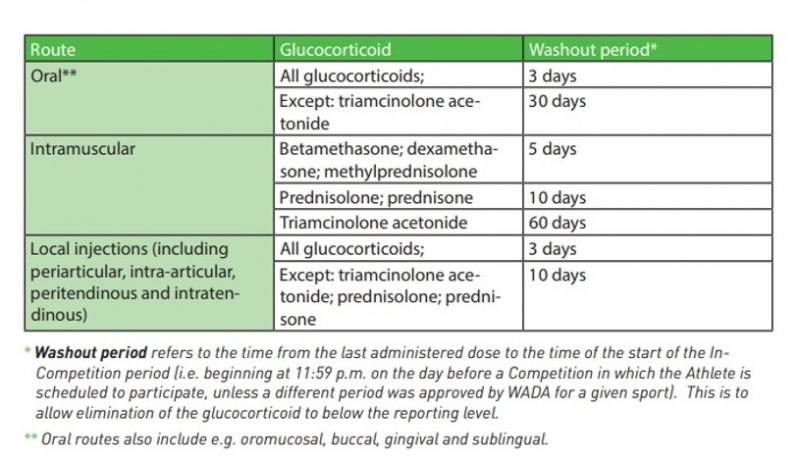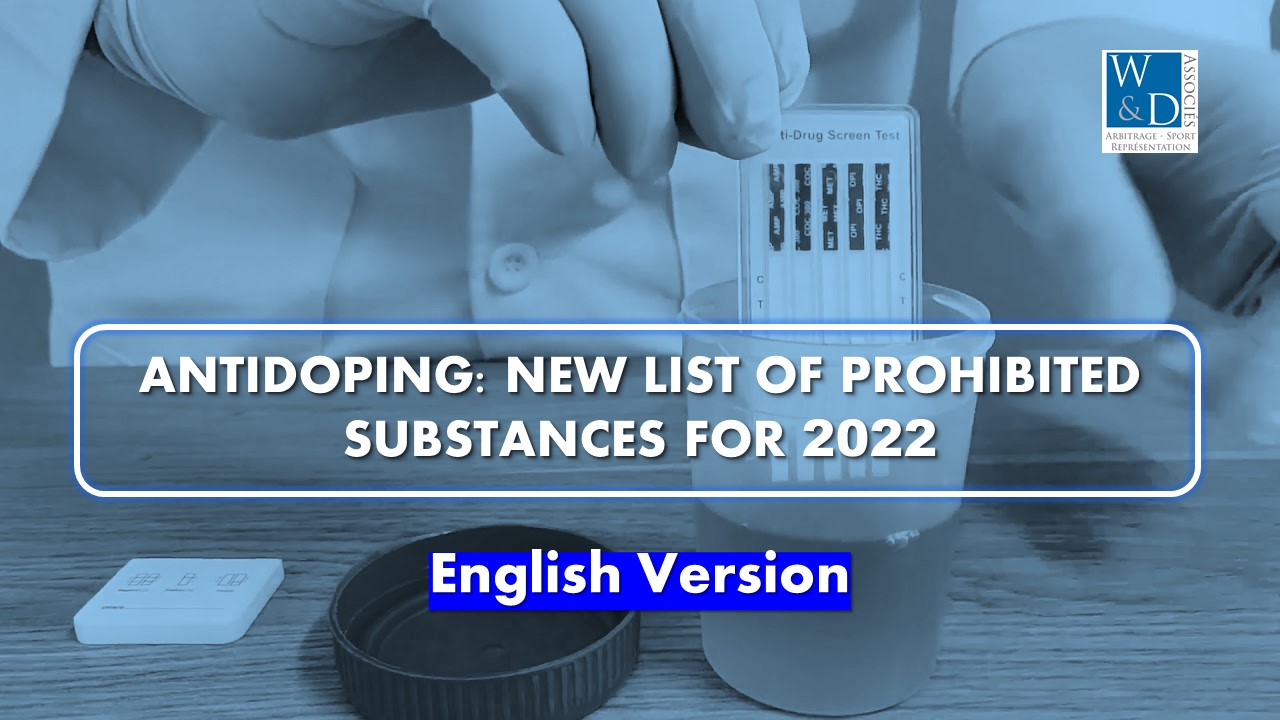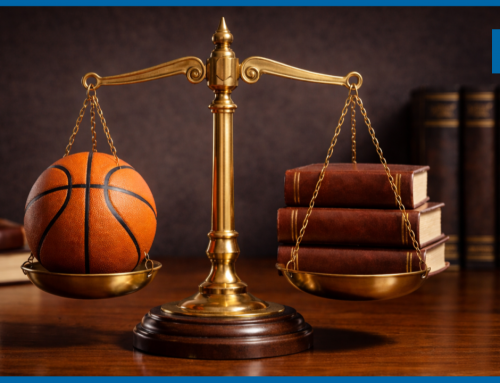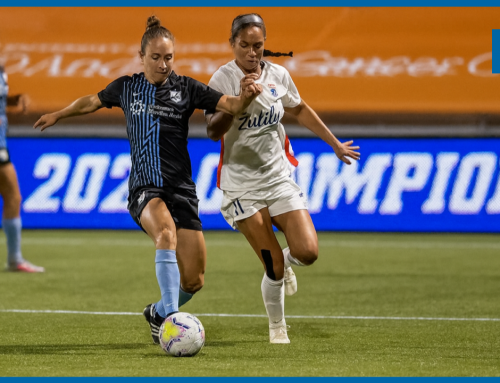Author: Antonio Quintero
Published by Winter – Dávila & Associés in Paris, on october 15th 2021.
Would you like legal advice on sports law? Do not hesitate to contact us!
The World Anti-Doping Agency, as it does every year, publishes its new list of prohibited substances. The mechanism is always the same. There is a commission that studies every year which new substances and methods can be used for doping and evaluates on the basis of three criteria which substances can be included. The criteria are:
1) That the substance is performance enhancing.
2) That the substance harms the athlete’s body.
3) That the substance is unethical in sport.
If two of these three criteria are met, the substance is banned. There are a number of changes to the new list of banned substances. However, the one that most strikes us is the one that has to do with Glucocorticoids, which were previously forbidden to be administered in competition by four routes: topical, oral, rectal or intramuscular. In other words, it was the form of administration that was prohibited, rather than the substance itself. As of 1 January 2022, all forms of administration for glucocorticoids are banned in competition.
In addition, a time table is established, which tells you from when it would be considered an anti-doping rule violation depending on the route of administration and the type of glucocorticoid. In other words, if they are consumed in a shorter period of time than that established, it will be necessary to request a Therapeutic Use Exemption so that the athlete does not get into trouble.

Finally, please pass this information on to athletes and doctors as the best way to avoid an infringement is to prevent it.
All changes can be found here
If you liked this Sports Law topic, we invite you to share the article, comment on it and also to visit the rest of publications in the social networks and platforms of Winter – Dávila et Associés
Original language of the article: Spanish
About the author,

Antonio Quintero :
Lawyer graduated from the Universidad Metropolitana in Caracas, Venezuela (2007). He studied at the Instituto Superior de Derecho y Economía in Spain, obtaining a Master’s Degree in International Sports Law (2008). He has also completed several postgraduate studies, including: Sports Management in Baseball (Universidad Central de Venezuela), Diploma in Football Coaching (Universidad Deportiva Sur, Comité Olímpico Venezolano, Centro de Estudios e Investigación del Deporte), Diploma in Litigation (Universidad Metropolitana) and a course in expression (Universidad Central de Venezuela).
He is also a member of the South American Rugby Federation and the International Association for Football Lawyers.
This article was published by Winter – Dávila & Associés, an international law firm based in Paris, in France, represented by lawyers specialized in sports law, corporate law, arbitration and representation.








Leave A Comment